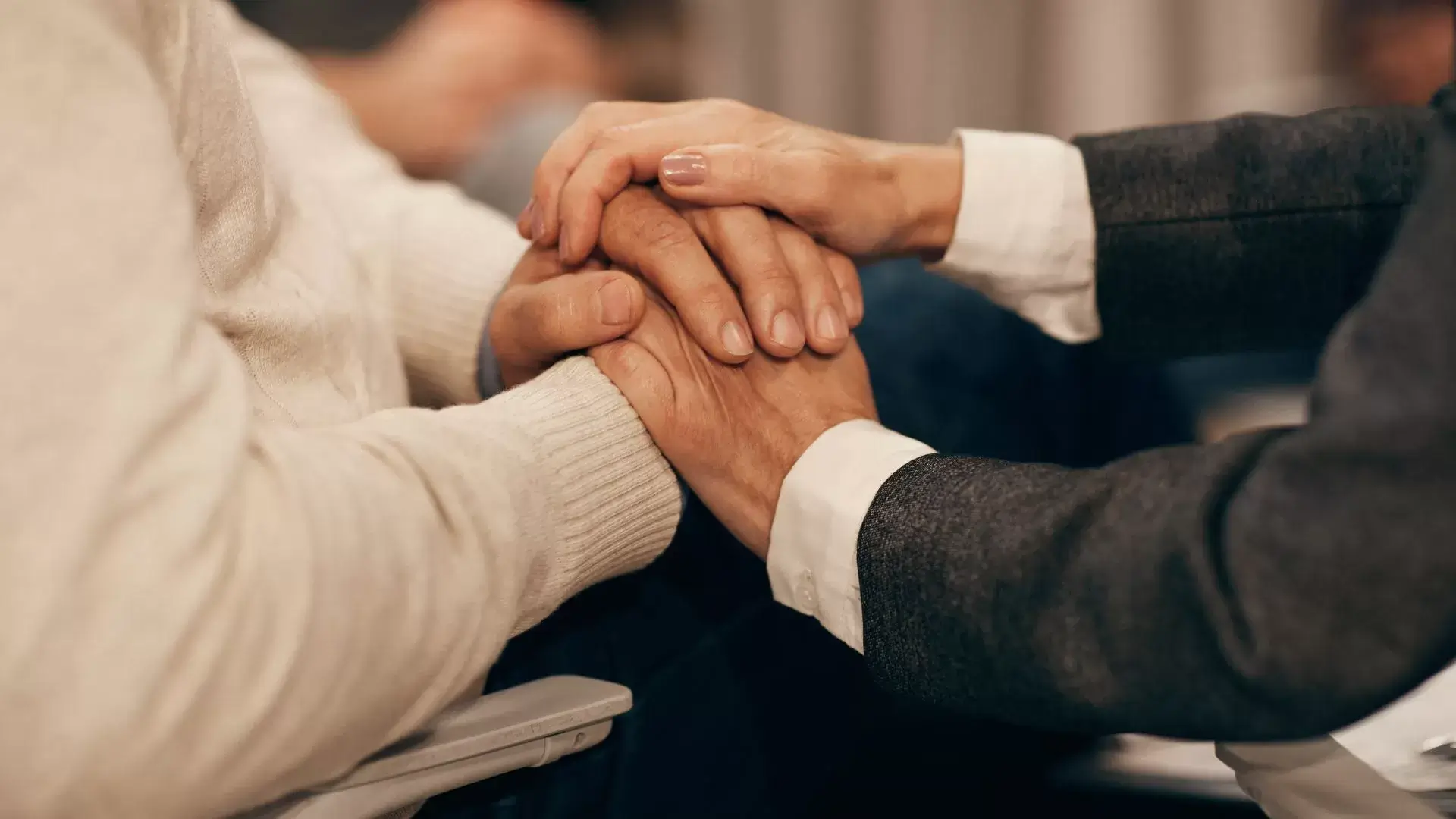It is understood that supporting a loved one facing domestic violence is incredibly challenging but essential. Let’s offer them consistent emotional support, listening without judgment, and acknowledging their bravery. It’s vital to help them explore safe options, like trusted friends or local shelters, while respecting their choices and autonomy. We should maintain confidentiality, empowering them to control their narrative. Encouraging professional help can provide necessary guidance and healing. Remember, our own well-being matters too, so let’s take care of ourselves as we lend support. Together, we can navigate this journey and find ways to help them more effectively.
About Oakville Psychotherapist
At Oakville Psychotherapist, we acknowledge the profound impact that domestic violence can have on individuals and their loved ones, and we’re here to provide compassionate support tailored to their unique experiences. We realize that reaching out for help can be an intimidating step, and we’re committed to creating a safe, welcoming environment where healing can begin.
Located at 243 North Service Rd W #106F, Oakville, ON L6M 3E5, our team of dedicated professionals is trained to address the complex emotions and challenges faced by those affected by domestic violence. We believe that each person’s journey is different, and we actively listen to grasp their specific needs.
Our approach combines empathy with effective therapeutic techniques, allowing us to guide clients toward empowerment and resilience. We focus on fostering a strong therapeutic relationship, ensuring that our clients feel supported every step of the way. If you or someone you care about needs assistance, don’t hesitate to reach out to us at (647) 360-5880. Together, we can navigate this difficult journey and find a path toward healing and hope
Offer Consistent and Unwavering Emotional Support
Offering consistent and unwavering emotional support is vital for anyone traversing the turbulent waters of domestic violence, as it helps them feel valued and understood during their most challenging times. We understand that simply being there can make a significant difference. Our presence allows them to express their feelings freely, without judgment or fear of repercussions.
Let’s listen actively, offering our full attention. When they share their experiences, we should validate their emotions, reminding them that their feelings are real and important. It’s vital we avoid minimizing their situation or suggesting they should just ‘get over it.’ Instead, we can acknowledge the bravery it takes to confront such hardships.
We can also check in regularly, reaching out with messages or calls to remind them they’re not alone in this struggle. By maintaining open lines of communication, we create a safe space for them to share their thoughts and feelings whenever they need to.
Ultimately, our unwavering support can help them regain a sense of control and self-worth, reminding them they deserve love and safety. Together, we can be a steady lighthouse guiding them through their storm.

Help Them Explore Safe and Practical Options
Together, we can help them explore safe and practical options that empower their journey toward safety and independence. It’s crucial to approach this process with care and empathy, ensuring they know we’re here to support them every step of the way.
First, we can discuss different safe spaces they might consider, whether it’s staying with a trusted friend or seeking refuge at a local shelter. We should share resources like hotlines or support groups that can provide immediate assistance and a listening ear.
Next, we can help them develop a safety plan, which might include strategies for leaving quickly if needed, packing essential items discreetly, or identifying escape routes. We can also brainstorm ways to secure their financial independence, whether through finding employment opportunities or accessing community resources.

Respect Their Autonomy and Decisions
Recognizing their right to make decisions about their own life is essential as we support them through this challenging time. It’s easy to feel the urge to direct them toward what we perceive as the best choices, but we must remember that they’re the ones living this reality. We need to encourage their independence and validate their feelings, even when we don’t fully understand their choices.
Let’s offer our support without judgment. When they share their thoughts or plans, we can listen actively, showing that we care and respect their perspective. It’s important to remind them that they have the power to choose their path, even if that path doesn’t align with what we think is best. We should be patient and compassionate, allowing them to navigate their situation at their own pace.

Maintain Strict Confidentiality
In times of crisis, it’s essential we prioritize strict confidentiality to create a safe space for our loved one to share their experiences without fear of exposure. When someone we care about is facing domestic violence, the last thing we want is to inadvertently increase their risk by sharing their story with others. By keeping their situation private, we show our commitment to their safety and well-being.
We need to remember that our loved one may feel vulnerable and isolated. By maintaining confidentiality, we validate their feelings and foster trust. It’s vital that we don’t pressure them to disclose details to anyone outside of our circle, as this could lead to unwanted consequences. Instead, we can reassure them that we’re here to listen and support them, without judgment.
Let’s also be mindful of our own conversations. Even casual remarks can unintentionally reveal information. We should refrain from discussing their situation with friends or family, unless we have explicit permission. By protecting their privacy, we empower our loved one to take control of their narrative, paving the way for healing and strength in their journey. Together, we can create a supportive environment grounded in trust and respect.
Encourage Them to Seek Professional Help
Encouraging our loved one to seek professional help can be an essential step towards their healing and empowerment. We acknowledge that the idea of reaching out to a therapist or counselor might feel overwhelming for them. They may fear judgment or worry about opening up about their experiences. It’s important for us to remind them that professionals are trained to provide support in a safe and confidential environment.
We can gently emphasize that seeking help is a sign of strength, not weakness. By normalizing their feelings and experiences, we can help them see that they’re not alone in this journey. Suggesting resources, whether it’s local support groups or hotlines, can provide them with options and alleviate some of the pressure they may feel.
Let’s also be patient and give them space to process this suggestion. We should reassure them that we’re here to support them every step of the way, no matter their decision. It’s about empowering them to take control of their situation, and when they’re ready, we’ll be there to encourage and celebrate their steps toward healing.
Prioritize Your Own Well-being and Emotional Health
As we support our loved one through their experience with domestic violence, it’s essential that we also take time to care for our own emotional health and well-being. When we’re deeply involved in helping someone in crisis, it’s easy to overlook our own needs. However, neglecting our well-being can lead to burnout and emotional fatigue, making it challenging for us to provide the support our loved one truly needs.
We should actively engage in self-care practices that restore our energy and maintain our mental health. This could mean setting aside time for activities we enjoy, connecting with friends, or simply allowing ourselves to feel and process our emotions. It’s okay to acknowledge that this journey is difficult for us too; we’re human, and our feelings matter.
Seek Help from Our Registered Psychotherapists
Recognizing when we need additional support is an essential step in our journey alongside a loved one facing domestic violence, and seeking help from registered psychotherapists in Oakville can provide us with the tools and guidance we need. These professionals have the expertise to help us navigate the complex emotions and challenges that arise when supporting someone in this situation.
When we reach out to a psychotherapist, we gain a safe space to express our feelings and fears. They can help us understand the dynamics of domestic violence, equipping us with strategies to support our loved one without compromising our own emotional well-being. This support isn’t just for our loved one; it’s for us too. We’ll learn how to manage our stress and anxiety, ensuring we can be there for them in a healthy way.
It’s important to remember that we’re not alone in this. By seeking help together, we create a strong foundation for healing. Psychotherapists can guide us in fostering resilience and understanding, ultimately helping both us and our loved one to find a path toward safety and recovery. Let’s take this step together; it can make all the difference.



